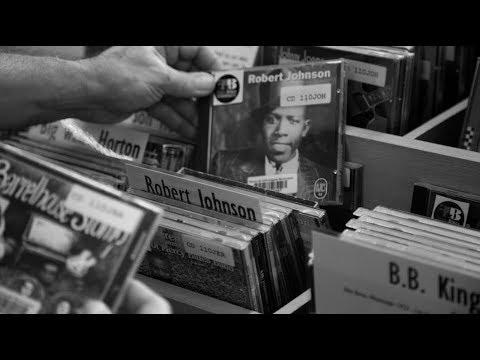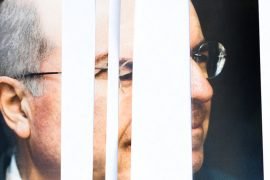The blues had a baby and they named it rock and roll. The great Muddy Waters sung it, and of course he was right. Emerging from the poverty and the suffering of African American communities in the United States, this genre is an unquestionable pattern without which the history of modern music could not be explained. Its large number of variants -geographical, stylistic- form such a fertile source, that anyone can perfectly devote his or her life without the fear of wasting time. The singer Big Mama Montse, active for three decades, points out that the blues “has specific aesthetics, but apart from that it has a very specific pulsation, feeling: it expresses the most primitive part of the human being, the desire to connect, to feel alive, to share“.
Big Mama is the current president of the Barcelona Blues Society, a non-profit organization founded in 2005 to promote the dissemination and knowledge of this music. A complicated mission, and not due to the lack of raw material, but because the mainstream media are not very eager to reflect a scene that “is healthy in Barcelona and Catalonia”. According to my experience”, states Big Mama Montse, we are now better than before. I remember that fifteen or twenty years ago, when we had concerts with Juan Pablo Cumellas [the harmonist] we found a numerous audience: people that we did not know if they were exactly blues enthusiasts, or came to enjoy the concert, just like they could be attending to any other performance of any genre. Currently, I think there are many more people interested in this kind of music, and I suppose that we have -the associations, festivals and modest events- have contributed… all together standing as one”.
 The content of the Yearbook of the Blues 2017 – the only printed publication on the genre in Spain, which publishes precisely the SBB- confirms Big Mama’s depiction. Among other contents -background articles, interviews, reports, record reviews…- the magazine reflects that last year there were celebrated in Spain 86 festivals and cycles dedicated to the blues, 30 of them in Catalonia. All this sets up a panorama that the Barcelona Blues Society and its 250 members -half of them, musicians- contribute to boosting on very different fronts, starting with the concerts. In this chapter, the entity organizes the cycle Blues & Boogie de L’Hospitalet -where figures such as Keith Dunn, Mark Hummel and Mississippi Heat have performed, the Primavera in Black festival in the context of Spring Festival of L’Hospitalet, and two quarterly Blues Thursdays’ at the Casa Golferichs in Barcelona.
The content of the Yearbook of the Blues 2017 – the only printed publication on the genre in Spain, which publishes precisely the SBB- confirms Big Mama’s depiction. Among other contents -background articles, interviews, reports, record reviews…- the magazine reflects that last year there were celebrated in Spain 86 festivals and cycles dedicated to the blues, 30 of them in Catalonia. All this sets up a panorama that the Barcelona Blues Society and its 250 members -half of them, musicians- contribute to boosting on very different fronts, starting with the concerts. In this chapter, the entity organizes the cycle Blues & Boogie de L’Hospitalet -where figures such as Keith Dunn, Mark Hummel and Mississippi Heat have performed, the Primavera in Black festival in the context of Spring Festival of L’Hospitalet, and two quarterly Blues Thursdays’ at the Casa Golferichs in Barcelona.
The SBB also announces a biennial award aimed at new combos that consists of four different rewards (recording of a live video, recording of a disc, and performances at the festivals of blues of Benicàssim and Lleida), as well as annual prizes that began to be awarded in 2015, and since 2016 they have been named after the legendary bluesman Big Billy Broonzy. The list of distinguished people and entities offers new hints about the blues map in our country. The first year was received by the Capibola Blues association, linked to the Blues School of the city, the Blues Festival of Barcelona, and the Blues Nights’ at the Pueblo Español. The following years, the Honky Tonk Blues Bar at Sants (not to be missed by lovers of the concerts of the genre) and the singer-songwriter Quico Pi de la Serra for his long-life program T’agrada el blues? (“Do you like Blues?”) in the Catalan public radio. In 2018 Alfredo Papo (1922-2013) was awarded in memoriam, a very active musical critic and promoter of jazz and blues in the Catalan capital.
In a third, but no less significant stadium, the entity is responsible for an impressive Blues Fund deposited in Hospitalet, a city -as explained by another member of the SBB, Joan Ventosa- “that has historically wagered on the blues. In 2005 the Blues cycle was resumed in L’Hospitalet, and in this context began to take over the proposal to create a specialized fund at the Tecla Sala Library”. The archives, which opened in 2006 and that since the following year has the guarantee and material contributions of the European Blues Union, currently consists of about 5,000 pieces, mostly albums, but also videos, books, posters, leaflets, hand-held programs… The budget of the Sala Tecla Library and the individual donations -an example is Hugh Lynch’s, an English blues amateur settled down in Catalonia who, before dying, made a significant contribution- fed an important documentary container of African American music that also extends to genres such as soul or jazz.
The crown jewel of the Blues Fund is the first publication about the genre that is known in Catalonia and in Spain, published in 1951 by Dau al Set, with a portrait of Big Billy Broonzy by Joan Ponç
“The Fund, Ventosa points out, has acquired a great name around Europe. Apart from the production of Spain, people can hear the blues that is being made in Hungary, Denmark, England or Italy”. The quarterly newsletter Blues a Fons, edited and distributed by the Tecla Sala, is also part of this informative task. The crown jewel of the Blues Fund is the first publication about the genre that is known in Catalonia and in Spain, published in 1951 by Dau al Set, with a portrait of Big Billy Broonzy by Joan Ponç. “We made an important investment to get this document, and we are very pleased”, says Joan Ventosa, who also highlights among the most valuable pieces of the collection the book by Englishman Paul Oliver, The History of Blues, “a reference work published in the Sixties which is out of print now, and for the blues’ fans is like the Bible”. Photographs -in some cases signed- of the great international blues stars that visited Hospitalet between 1988 and 1994, and a splendid historical genealogical tree of the genre elaborated by Miguel Abella and published by the SBB, are a must for all those who get close to the Tecla Sala to enjoy this magnificent cultural heritage.




















